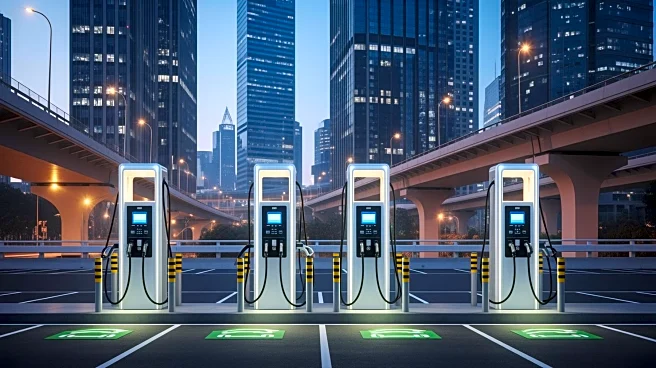What's Happening?
Hyundai has reported a significant decline in its electric vehicle (EV) sales for October, following the expiration of federal tax credits. The automaker sold only 1,642 units of its IONIQ 5 model, marking a 63% decrease from the previous year and a sharp
drop from the 8,400 units sold in September. This decline is part of a broader trend affecting several automakers, including Ford and Kia, who also experienced reduced EV sales. Despite the downturn in fully electric vehicle sales, Hyundai's hybrid models saw a 41% increase, contributing to an overall 8% rise in electrified vehicle sales. Hyundai's CEO, Randy Parker, noted that the expiration of the tax credits has temporarily disrupted the market, but the company remains optimistic about future sales.
Why It's Important?
The decline in EV sales following the end of federal tax credits highlights the significant impact of financial incentives on consumer purchasing behavior. The reduction in sales could slow the transition to electric vehicles, affecting automakers' strategies and potentially delaying progress towards environmental goals. Automakers like Hyundai, which have invested heavily in EV technology, may face challenges in maintaining sales momentum without the support of tax incentives. This situation underscores the importance of government policies in shaping the automotive market and advancing the adoption of cleaner technologies.
What's Next?
Hyundai and other automakers are likely to adjust their strategies to cope with the new market dynamics. This could include offering additional incentives or discounts to attract buyers. The industry will be closely watching consumer responses and may advocate for the reinstatement of tax credits or other supportive measures. As the market adjusts, automakers will need to balance their focus on hybrid and fully electric vehicles to sustain growth in the electrified vehicle segment.














